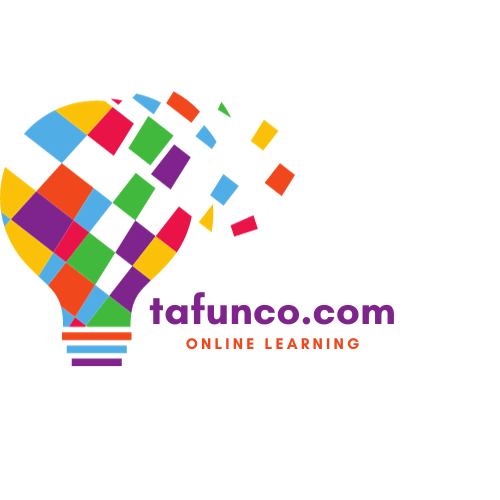Online learning has become a potent instrument in the quickly changing educational environment, providing previously unheard-of flexibility and accessibility. Customizing and personalizing the learning process is one of the main benefits of online learning. This customized method improves engagement and subject matter mastery while also accommodating a variety of learning styles. This essay will discuss the value of personalization in online learning and how it gives students more control over their educational path.
Adaptable Educational Routes:
The freedom that personalization in online education provides for creating learning pathways is one of its main advantages. One-size-fits-all approaches are common in traditional classroom settings, while online learning environments provide students more flexibility in terms of learning sequence and speed. This flexibility is especially helpful for those who have different degrees of previous knowledge or who would like go deeper into a particular subject.

Systems of Adaptive Learning:
Adaptive learning systems, which employ data and algorithms to customize the learning experience to each student’s unique requirements, are a result of technological advancements. These programs evaluate each student’s performance and modify the course’s material, tempo, and degree of difficulty appropriately. This promotes a more effective and efficient learning process by guaranteeing that students get tailored help when they need it most.
Varieties of Educational Materials:
Beyond conventional textbooks, an abundance of learning tools are accessible via online schooling. With customization, students may choose from a wide range of interactive simulations, multimedia resources, and practical applications that accommodate various learning preferences. With a wide variety of materials, including interactive tests, video lectures, and virtual laboratories, students may connect with the material in ways that uniquely speak to them.
Customized Evaluation and Recommendations:
Assessment in a tailored learning environment extends beyond examinations. Online learning environments often use continuous evaluation techniques that provide students instant feedback. This input is essential for determining areas that want development as well as for assessing comprehension. It promotes a growth attitude, in which failures are seen as chances to improve and learn.
Learning at Your Own Pace:
The foundation of customisation in online education is the idea of self-paced learning. Students are able to choose their own study schedules, which gives them the flexibility to manage their studies with other responsibilities like family or employment. People are empowered to take charge of their education thanks to this autonomy, which promotes accountability and self-control.
Diversity and Global Collaboration:
Distance learning breaks down geographical barriers and unites a multicultural community of students from all over the globe. In this case, customization is taking into account and combining different viewpoints in addition to adjusting information to suit individual requirements. By exposing students to a range of perspectives, group projects, discussion boards, and peer-to-peer interactions improve the educational process.
Learning Analytics in Real-Time:
The use of real-time learning data enhances customization in online learning. Platforms for education may gather and examine data on a student’s performance, engagement, and growth. These insights support the decision-making process for both instructors and students when it comes to changing the learning trajectory. For example, the system might suggest more difficult assignments for a student who is doing well in a certain subject, and it can also suggest extra help for the student in areas where they might be having trouble.
Personalized Education Programs:
A key component of personalization are learning plans that are specifically designed for each individual based on their objectives, interests, and learning styles. These plans work as road maps, taking students through a well chosen order of subjects and exercises. Individualized learning plans make sure that a student’s educational path is in line with their own goals, whether those goals are to get a thorough comprehension of a topic or to master a particular skill.
Skill Development and Career Coherence:
Online learning may be customized for more than just academic courses; it can also be used for career and skill development. Students are able to choose courses and modules that correspond with their professional objectives, giving them the opportunity to gain information and skills that are applicable to the careers they have chosen. In addition to improving employability, this individualized approach gives students a feeling of direction and purpose for their educational path.
Individual Learning Communities:

The development of personal learning networks (PLNs) is made easier by the digital nature of online learning. By establishing connections with classmates, mentors, and business experts, learners may create a supportive and cooperative community. Through the provision of varied viewpoints, practical insights, and chances for cooperative initiatives, these networks enhance the quality of the educational process and help to further individualize the learning process.
Interactive and Gamification Elements:
An additional degree of customisation may be added to online courses by including gamification components. Features that resemble games, such leaderboards, interactive simulations, and badges, add excitement and engagement to the learning process. Gamification taps into intrinsic motivation by letting students go at their own speed and rewarding accomplishments, making the learning process both personalized and intrinsically fulfilling.
Building Habits of Lifelong Learning:
Online learning that is customized encourages the formation of lifelong learning habits. By customizing instruction to meet each student’s needs and preferences, educators empower students to take charge of their education outside of the classroom. In a world that is always changing and driven by information, the abilities of self-directed learning, critical thinking, and problem-solving that are developed via individualized online learning become very useful.
Reward Systems for Ongoing Enhancement:
Online education customization enables strong feedback loops that are advantageous to teachers and students alike. Constant feedback systems enable students to evaluate their own performance, recognize their advantages and disadvantages, and choose the best learning approaches. Educators may use this input to develop assessment tools, instructional strategies, and course materials all at the same time, resulting in a positive feedback loop that helps all parties engaged in the learning process.
All-Inclusive Educational Settings:
Additionally essential to creating inclusive learning environments is customization. Online courses may be tailored to meet the needs of students with varying learning styles, preferences, and accessibility requirements. Customization guarantees that educational resources are accessible to a wide variety of learners, fostering inclusion and equitable chances for everyone. This may be achieved by the incorporation of adaptive technology, the provision of transcripts for video content, or the provision of alternate formats for textual materials.
Bite-Sized Knowledge via Microlearning:
Customization in online education is a natural extension of microlearning, which divides instructional material into more manageable, bite-sized chunks. The ability for learners to concentrate on certain subjects or competencies enhances the effectiveness and targeting of the learning process. This method works especially well for those with hectic schedules since it fits learning into little periods of time without sacrificing retention or attention levels.
Personal Assistants Powered by AI:
Artificial intelligence (AI)-powered personal assistants for online learning have been developed as a result of advancements in AI. Based on a learner’s progress and preferences, these virtual companions may give assistance, tailored suggestions, and answers to questions. These assistants learn more about each student’s unique learning style and adjust their assistance accordingly to maximize the learning process thanks to machine learning algorithms.

Collaborative learning and user-generated content:
Customization includes what students bring to the table as well as what teachers contribute. Online resources often promote user-generated content, allowing students to share their knowledge, materials, and group projects. By using the combined expertise and creativity of the learning community, this not only gives the educational process a more personalized touch but also enhances it overall.
Ethical and Data Privacy Considerations:
Since data-driven insights play a major role in customisation in online education, it is imperative to address ethical and data privacy issues. Protecting student data, maintaining data use openness, and putting strong security measures in place must be the top priorities for educational platforms. In the rapidly changing world of online education, maintaining trust and upholding moral norms requires finding a balance between personalization and privacy.
In summary:
Online customization is the driving force behind a revolution in education, taking learning from a static, uniform procedure to an interactive, individualized experience. Online learning environments enable students to reach their full potential by accommodating individual preferences, learning styles, and pace. The potential for personalization is endless as technology develops, heralding a day when instruction is really customized to meet the requirements of each and every student. We are getting closer to a day where education is not just available to everyone but also specially tailored for each individual as we accept this change.



